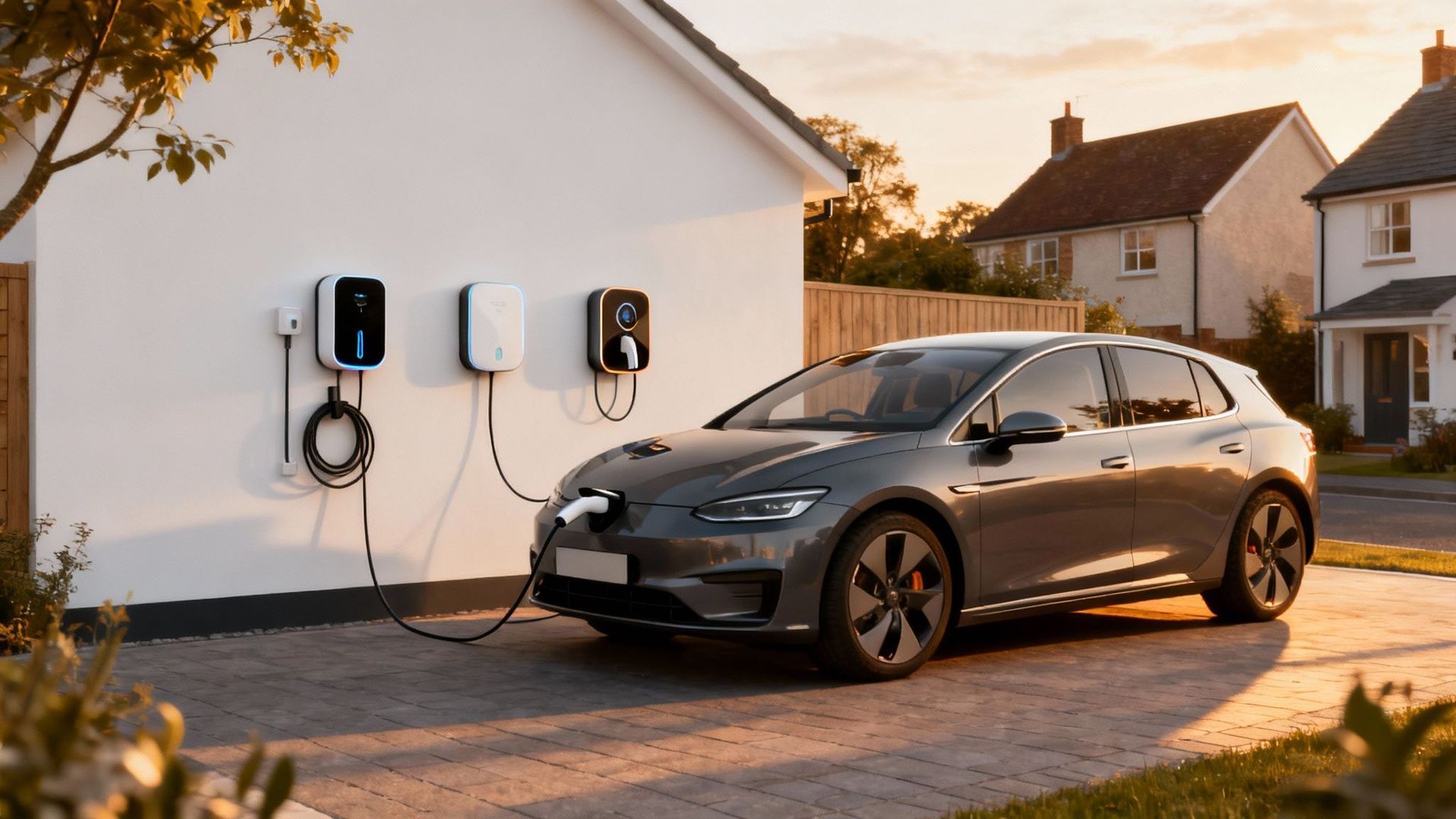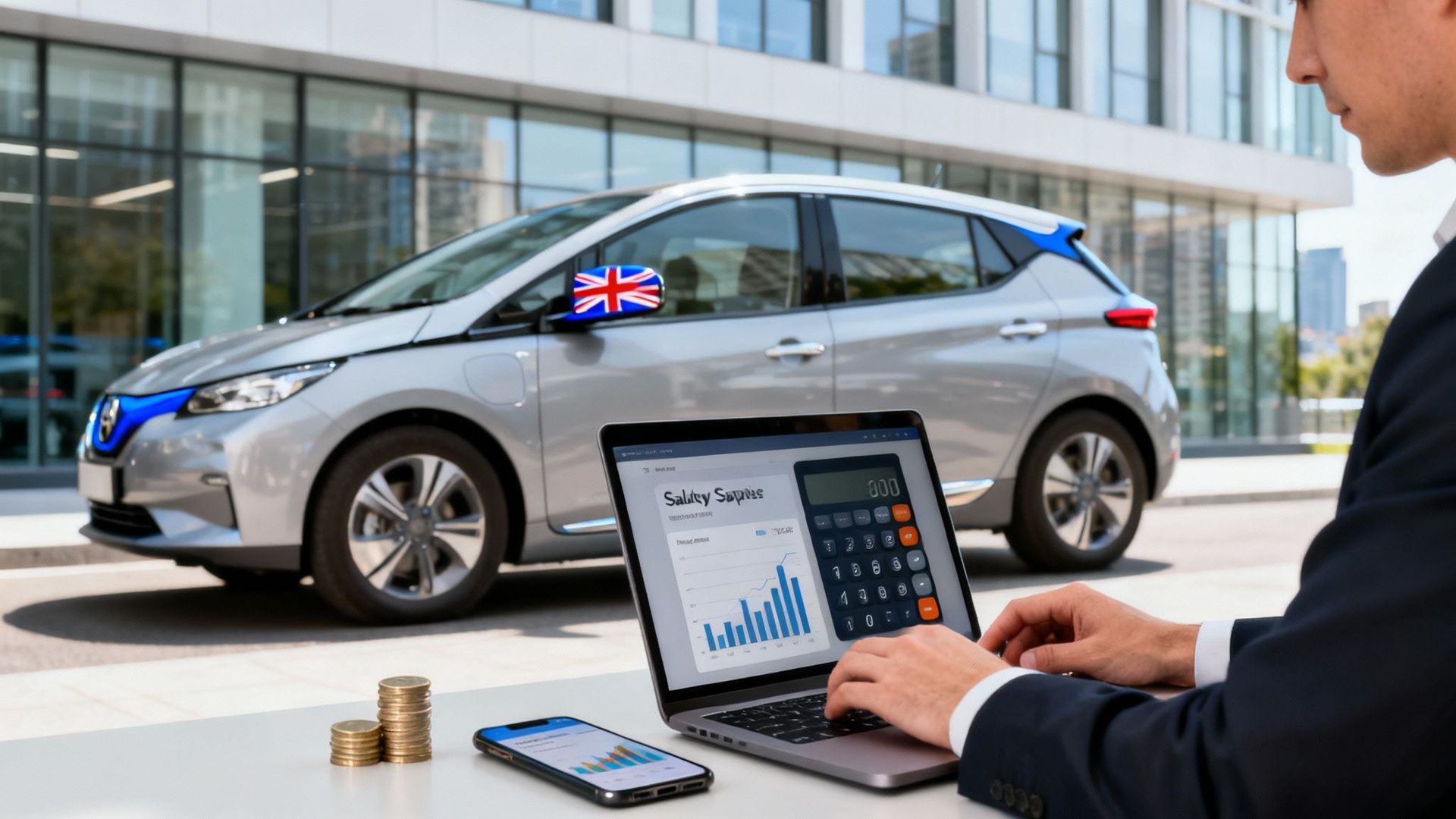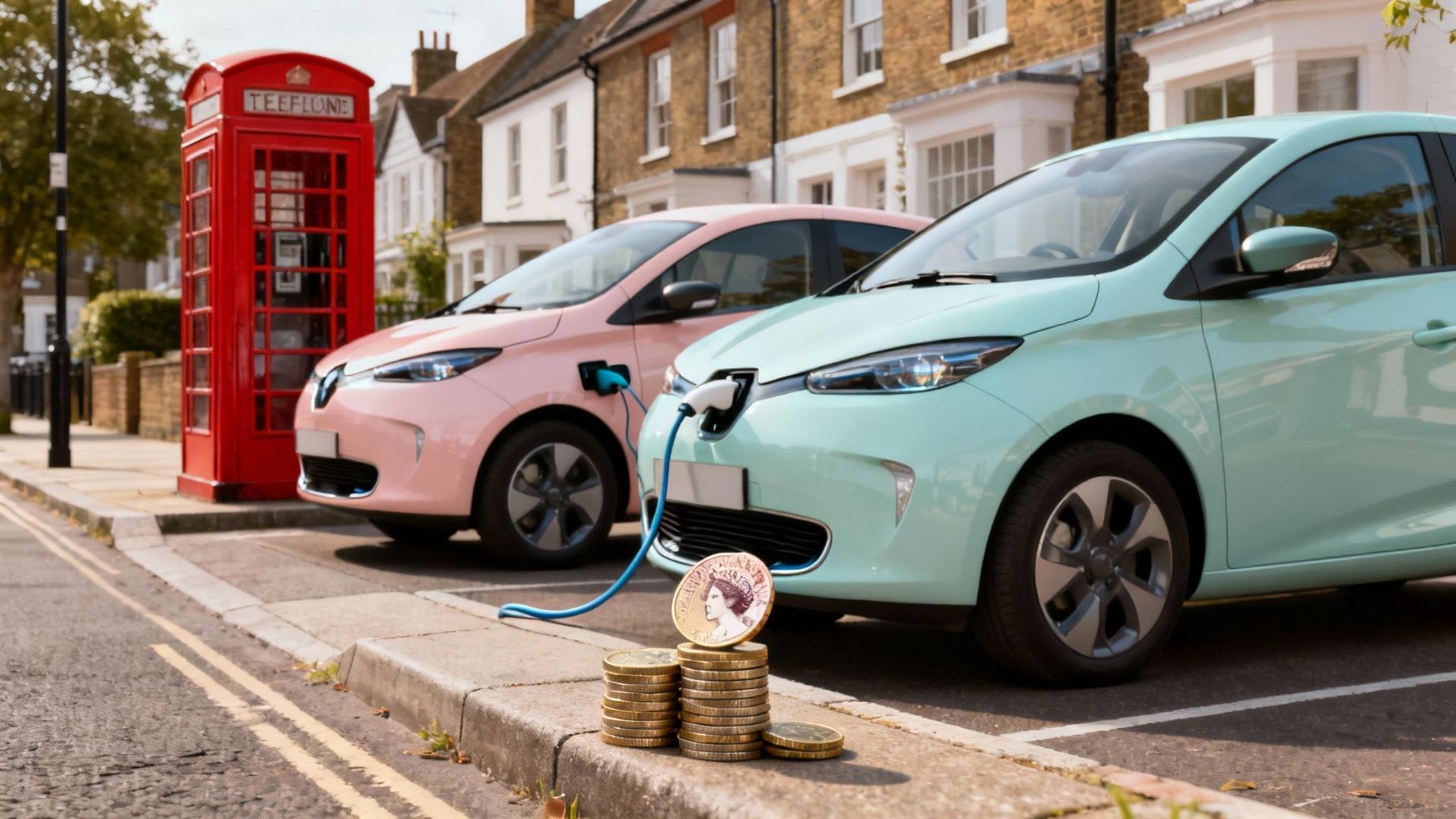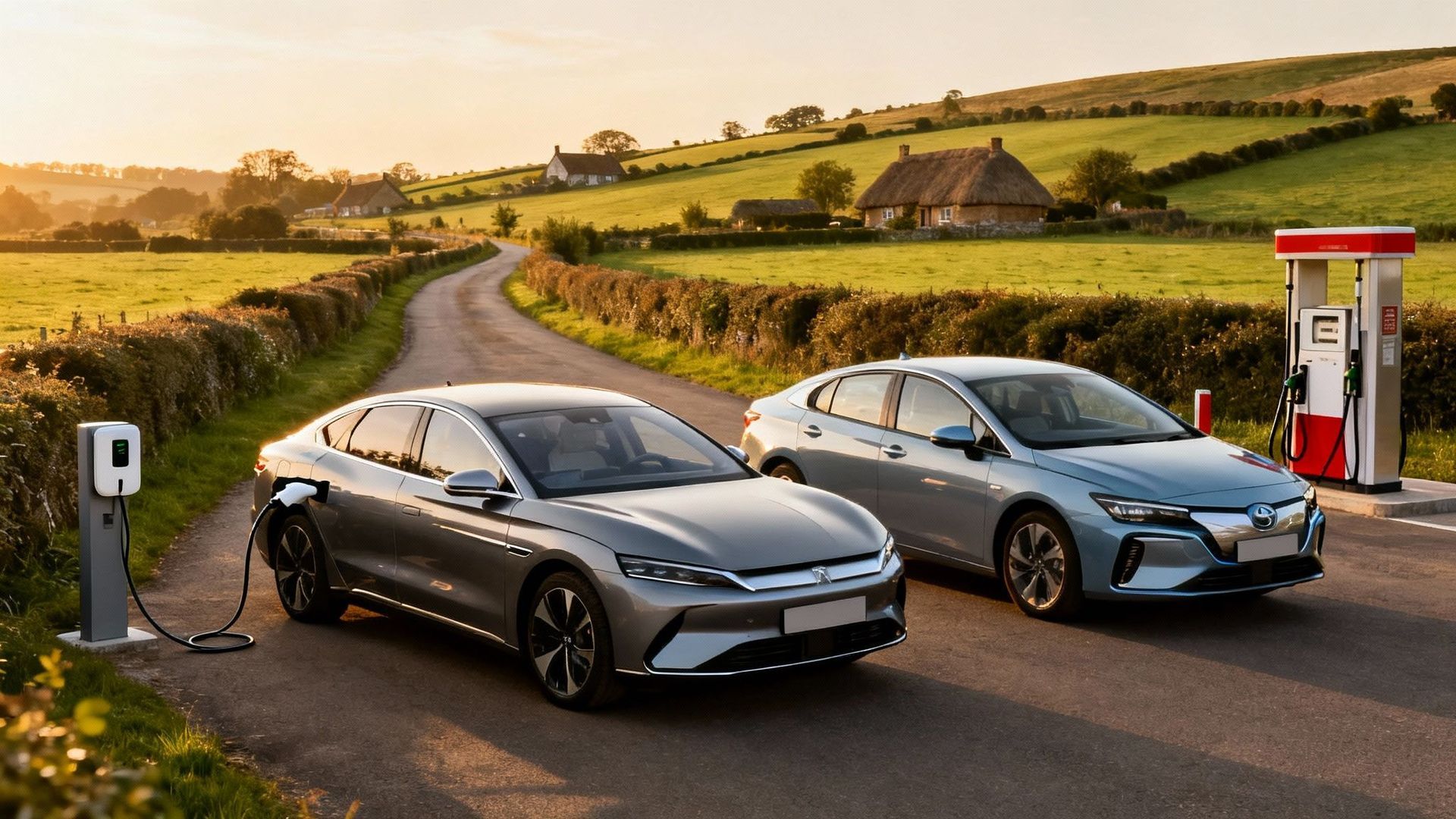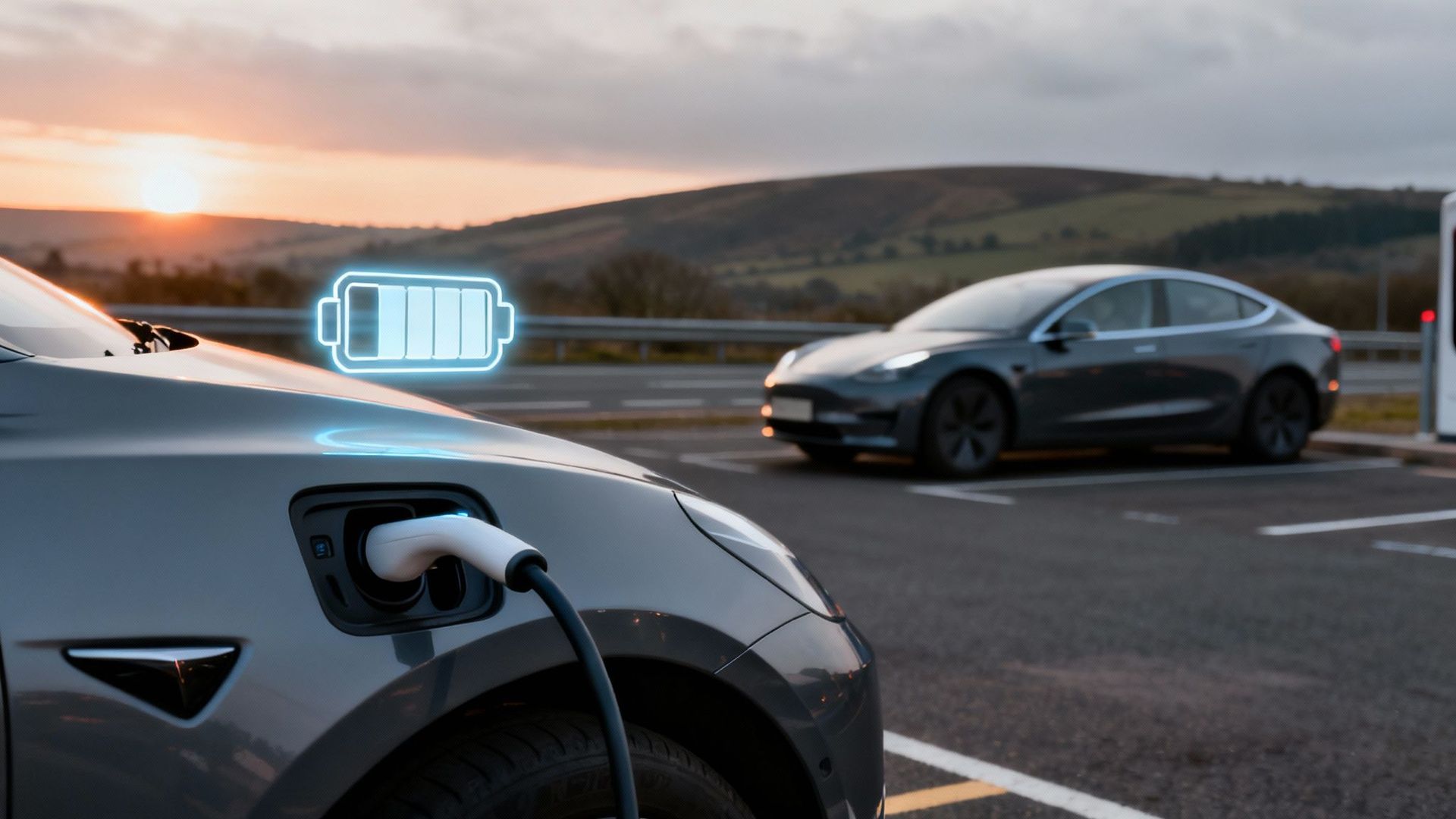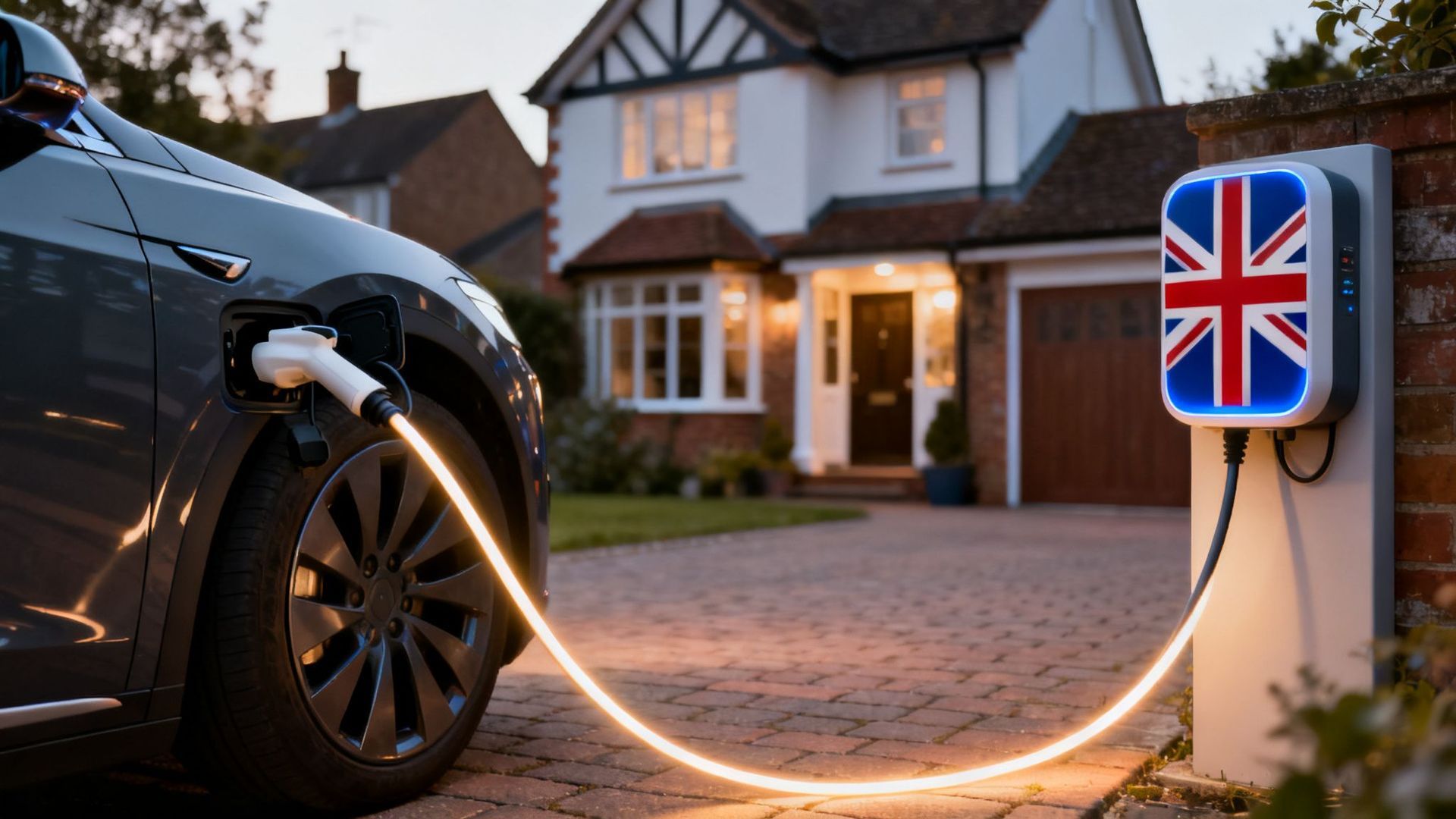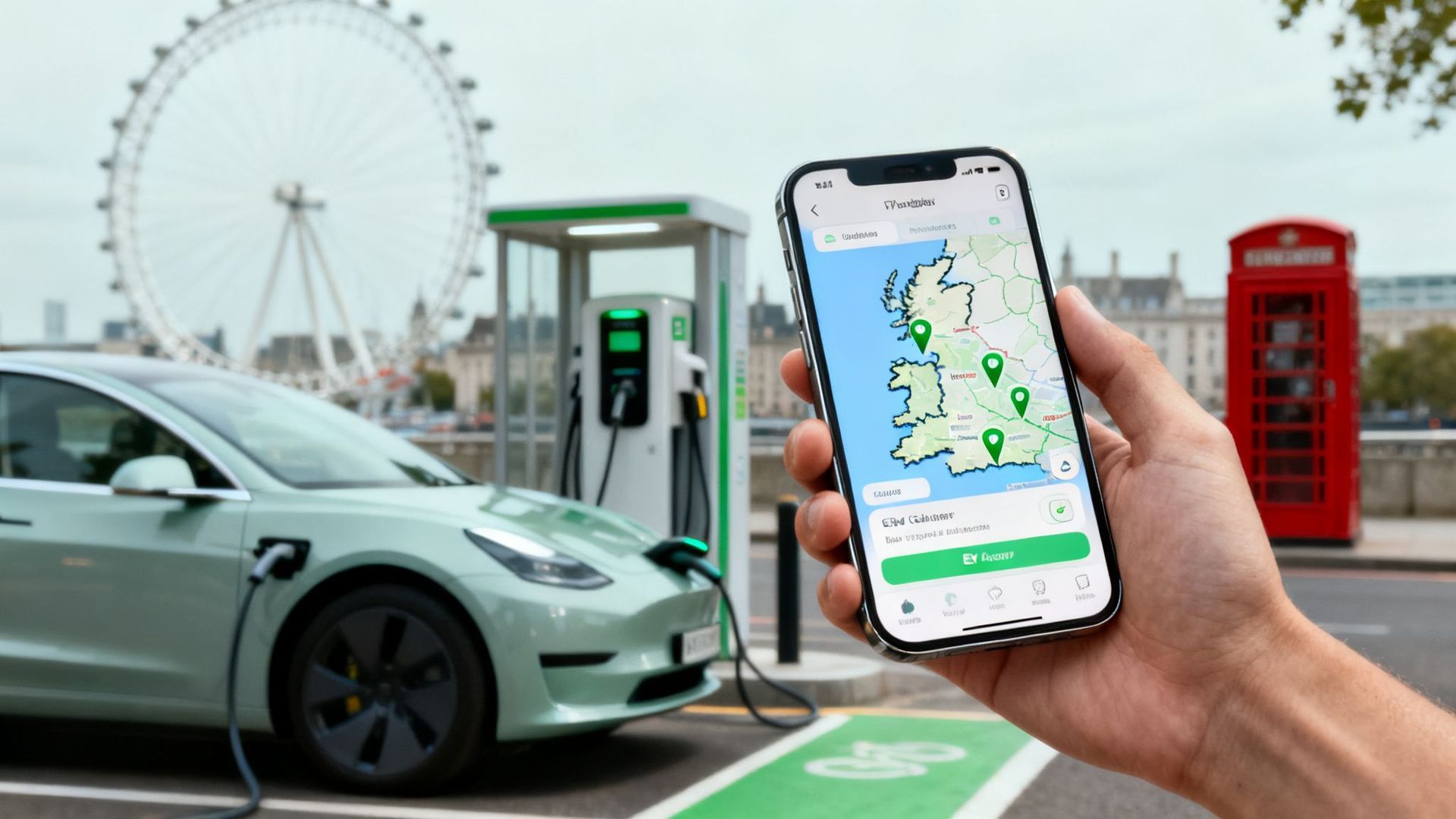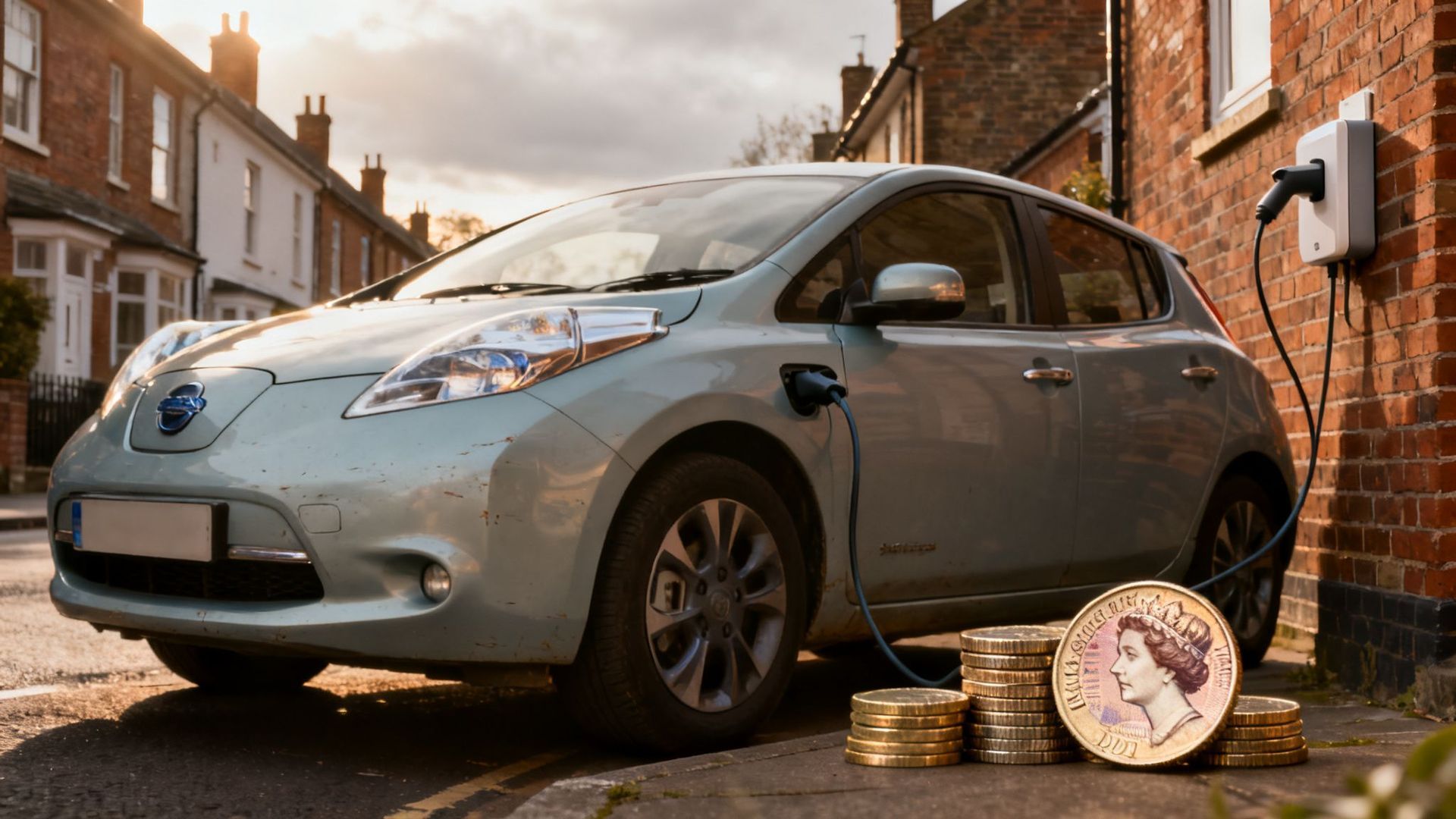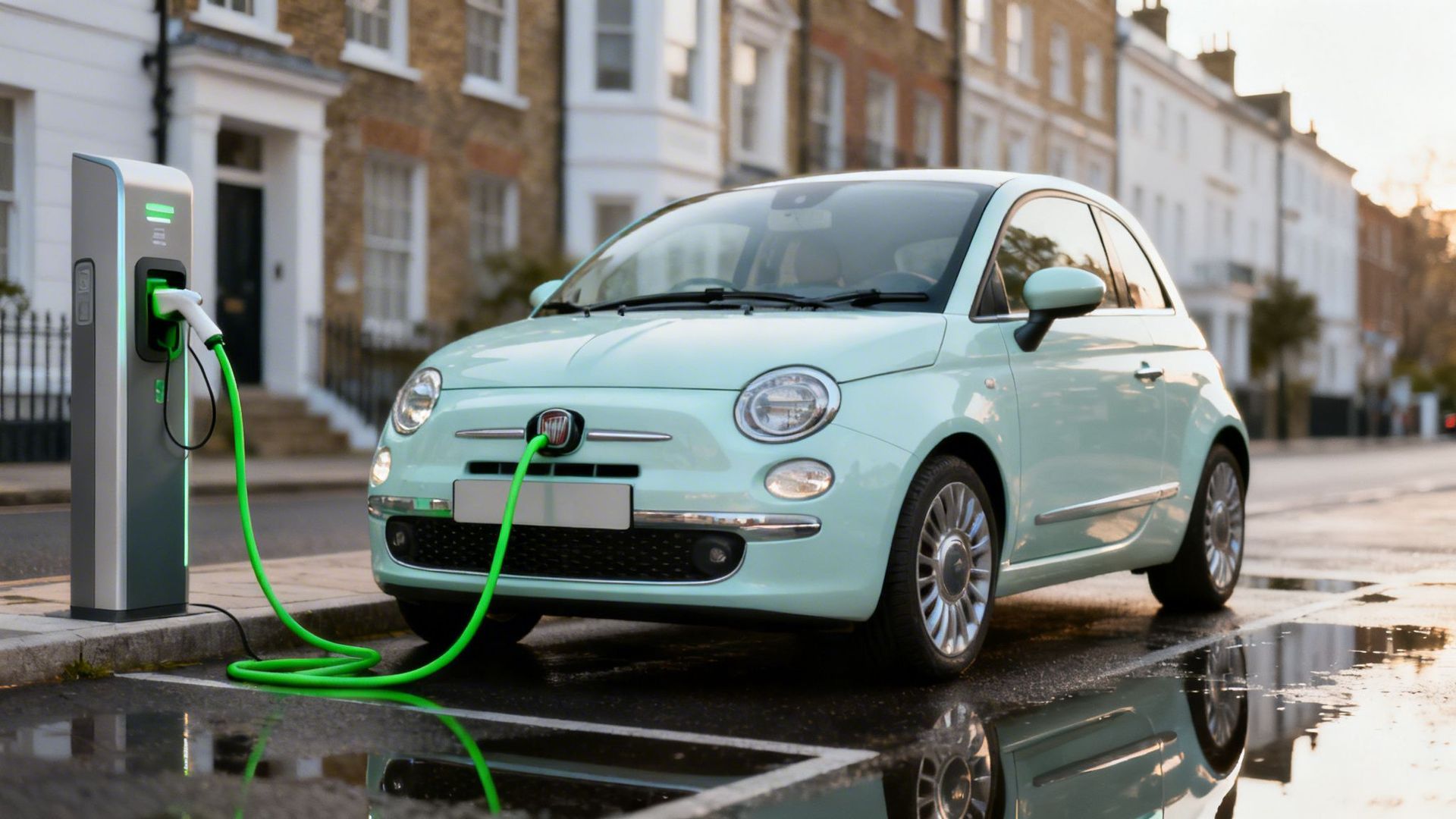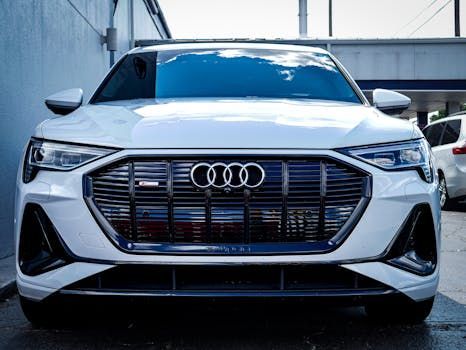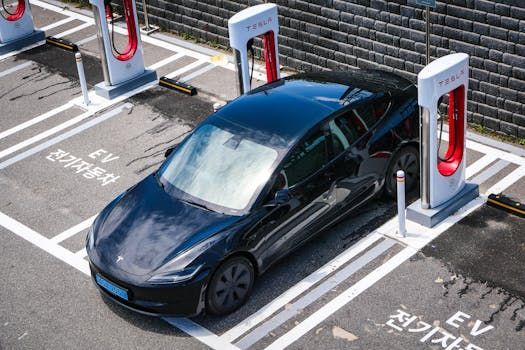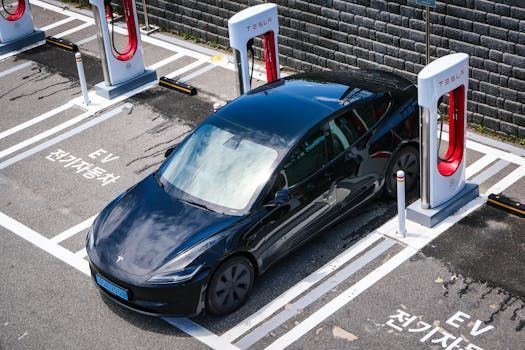Electric Car Battery Replacement Cost: Don't Sell a Kidney Just Yet
Let's be honest, the first question that pops into anyone's head when pondering EV ownership is the battery. You’re probably picturing a bill with more zeroes than a lottery winner's bank statement. The sobering average in the UK hovers around £7,200 , but that figure can swing more wildly than a politician's promises, depending on your car's badge and the size of its battery pack.
Think less about swapping the AAs in your telly remote and more about performing a heart transplant on your motor.
The Unvarnished Truth About EV Battery Costs
Right, let's get the scary bit out of the way first. The horror stories you’ve heard about repair bills that could buy a perfectly respectable used hatchback aren't entirely dreamed up by petrolheads. Replacing the battery in an electric vehicle is, without a doubt, the single most expensive piece of work you could ever face as an owner.
But why the monumental price tag? It’s not just a big Duracell, after all.
The heart of the matter is what these batteries are made of. They are absurdly complex, high-tech powerhouses, crammed with precious and occasionally moody materials like lithium, cobalt, and nickel. Building them is an intricate, energy-guzzling process that only happens in colossal, specialised factories. It helps to think of it less as a car part and more as a highly sophisticated piece of industrial hardware that just happens to live under your car's floor.
What Drives the Price Tag?
That hefty price tag isn't just plucked from thin air to make your wallet weep. Several key factors conspire to produce that final, gut-punch figure on the invoice.
- Battery Size (kWh): This is the big one. The larger the capacity of your battery, measured in kilowatt-hours (kWh), the more raw materials it contains and, you guessed it, the more it costs. A dinky 30kWh battery for a city runabout will be worlds cheaper to replace than a massive 100kWh pack from a long-range cruiser built for munching motorways.
- Raw Materials: The global market prices for lithium, cobalt, and other essential metals are about as stable as a toddler on a sugar rush. A spike in demand or a hiccup in the supply chain can directly inflate the cost of producing new batteries.
- Complexity and Brand: Not all batteries are created equal. A high-performance battery from a premium brand like Tesla or Porsche involves more advanced tech, cooling systems, and fancy engineering, all of which bump up the price compared to a more basic unit from a car that doesn't have a prancing horse on the bonnet.
The good news, if you can call it that, is that these costs can be broken down into a per-kWh rate. In the UK, the average rate sits at around £109.25 per kWh . Using that maths, a typical 66kWh battery replacement would land squarely in that £7,200 to £7,300 ballpark. You can find more details on EV battery costs in the UK.
The core reason for the high electric car battery replacement cost is a mix of complex engineering and simple supply and demand. It's a bit like performing a heart transplant on your car; the organ itself is incredibly valuable and the procedure requires a specialist who doesn't come cheap.
To give you a clearer picture of how this plays out, we've put together a quick-reference table.
Estimated UK Battery Replacement Costs by Size
Here's a quick look at how your battery's size (in kilowatt-hours) impacts the potential replacement cost, based on average UK pricing.
| Battery Size (kWh) | Estimated Cost (Low End) | Estimated Cost (High End) |
|---|---|---|
| 30 kWh | £3,000 | £5,000 |
| 40 kWh | £4,000 | £6,500 |
| 60 kWh | £6,000 | £9,000 |
| 75 kWh | £7,500 | £11,000 |
| 100 kWh | £10,000 | £15,000+ |
As you can see, the bigger the battery, the bigger the potential bill. This is the single most important factor when it comes to the final cost.
Right, let's get one thing straight before you start frantically checking the value of your internal organs on the dark web. The panic surrounding the cost of replacing an electric car battery is, frankly, blown way out of proportion. These batteries aren't designed to self-destruct the minute your warranty runs out.
In reality, they are remarkably durable pieces of kit, often lasting longer than the car itself. That crippling, unexpected bill that haunts the imagination of prospective EV drivers is almost always a myth. Battery degradation is a slow, predictable process, not a sudden financial catastrophe.
Here in the UK, you can realistically expect an electric car battery to last anywhere from 10 to 20 years before a replacement even becomes a topic worth discussing. That’s a testament to just how robust the technology has become. Over time, a battery naturally loses some of its ability to hold a full charge, which gradually reduces your maximum range. It’s a slow fade, not a sudden conk-out. You can read more about EV battery longevity from the RAC for extra peace of mind.
Understanding Your Battery's Health
The term you'll hear bandied about is State of Health (SoH) . The best way to think of it is like the battery health percentage on your smartphone. It starts at a perfect 100% when the car is new and slowly decreases over thousands of miles and hundreds of charges. The key word here is slowly.
This gradual decline means you aren't going to wake up one morning to find your car has the same range as a milk float. What you will notice, perhaps after a decade of driving, is that your original 250-mile range might now be closer to 220 miles. It’s a gentle decline that gives you years to plan, not a sudden blackout that leaves you stranded.
Your Warranty Is a Legally Binding Safety Net
Now for the part that should really put your mind at ease. Every single new EV comes with a comprehensive, legally binding manufacturer's warranty for the battery. This isn't just a marketing gimmick; it's your ultimate financial shield.
Think of the warranty as a specific, contractual promise. It guarantees that your battery's State of Health won't fall below a certain level within a set time or mileage. It’s your protection against any premature problems or unusual costs.
This warranty is your armour against manufacturing defects or faster-than-normal degradation. The industry standard across the UK is pretty solid, usually offering cover for:
- Duration: 8 years of ownership.
- Mileage: 100,000 miles travelled.
- Performance: A guarantee that the battery will hold at least 70% of its original capacity.
So, if your battery’s health plummets below that 70% threshold while it's still under warranty, the manufacturer has to sort it out. They are legally obligated to either repair or replace it completely, at no cost to you. This protection covers almost any issue you might encounter in the first several years of ownership, meaning the average driver will never have to pay for a battery replacement.
Anatomy of an Eye-Watering Invoice
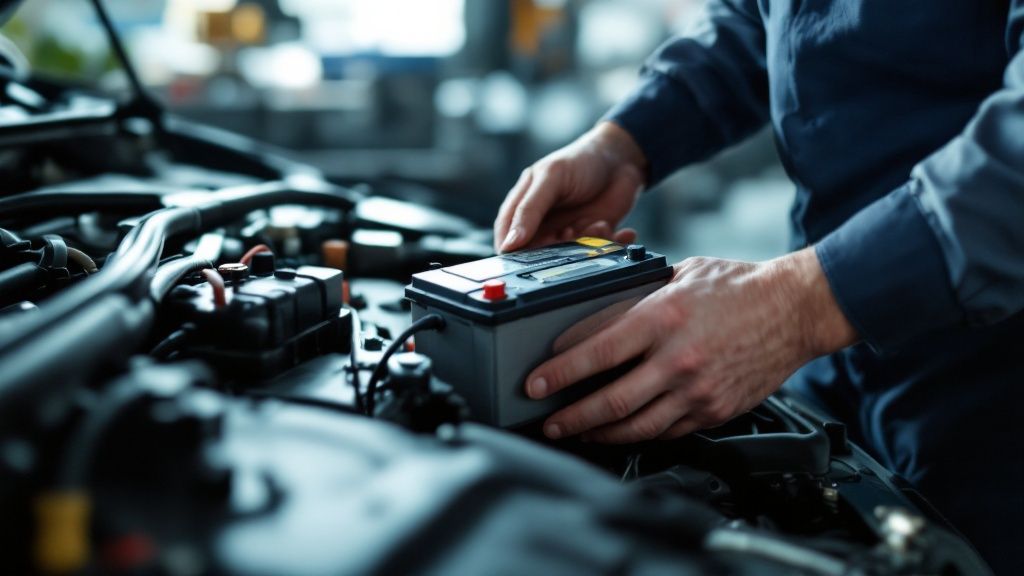
So, you’ve been handed a quote that looks more like a phone number than a repair bill. Before you reach for the smelling salts, let’s break down exactly where that massive figure comes from. Understanding the individual costs won't make the pill any easier to swallow, but at least you'll know what you're paying for.
Think of the final invoice as a cocktail of three main ingredients. Each one plays its part in driving up the total, and knowing what they are is crucial. It’s a bit like getting a bill at a posh restaurant and finding out they’ve charged you a tenner for the bread basket.
Let's pull this invoice apart, piece by painful piece.
The Big-Ticket Item: The Battery Pack Itself
This is the headline act, the main event, and the single biggest reason your wallet is about to feel a lot lighter. The physical battery pack accounts for the lion’s share of the replacement cost, often making up 80% or more of the final bill. Its price tag is influenced by a few key things:
- Size (kWh): As we’ve already touched on, a bigger battery means a bigger bill. A huge 100kWh pack designed for a long-range luxury EV will naturally cost a great deal more than a modest 40kWh unit from a small city car.
- Chemistry: The specific materials inside the cells – think lithium, cobalt, nickel, and manganese – have a huge impact on performance, longevity, and cost. Newer, more advanced battery chemistries usually carry a premium price.
- Brand: It’s no surprise that a battery from a premium manufacturer like Audi or Porsche will cost more than one from a more mainstream brand. You're paying for the badge, the specific engineering, and the performance that comes with it.
The People in Overalls: Labour Costs
Once you've factored in the battery, you need to account for the people fitting it. This isn't a weekend job for your mate Dave who’s "good with cars." Swapping out a high-voltage battery pack is a highly specialised, complex, and genuinely dangerous job.
This procedure demands certified technicians with specific training on high-voltage systems. They use specialised lifting gear, diagnostic tools, and extensive safety equipment to do the job safely. Those skills and that equipment don't come cheap.
Labour rates at a main dealer or an EV specialist garage can easily range from £100 to £200 per hour . A simple, straightforward swap might take 3-4 hours. But if any complications crop up, that time can quickly climb, taking the labour costs with it.
Those Sneaky Miscellaneous Extras
Finally, we have all the little bits and bobs that get tacked onto the end of the invoice. Individually they might not seem like much, but they can add a surprising amount to the final electric car battery replacement cost. These often include:
- Disposal Fees: Old EV batteries are classified as hazardous waste. They need to be disposed of or recycled according to strict regulations, and that process has a cost attached to it.
- Software Recalibration: The car’s central computer needs to be updated to recognise the new battery. This recalibration ensures everything from the range calculator to the charging system works correctly.
- VAT: And of course, let’s not forget the government’s cut. The ever-present 20% VAT is added on top of the entire bill, just to round things off nicely.
How to Maximise Your Battery Lifespan
The thought of a massive bill for an electric car battery replacement can feel pretty daunting. It’s the EV equivalent of being told your engine has seized. But you’re not powerless here. With a bit of know-how, you can seriously prolong your battery's life and push that dreaded replacement day far into the future.
Think of it as good battery etiquette; a few simple habits can save you thousands of pounds down the line.
The golden rule? Treat your battery gently. It doesn't like extremes. Constantly hammering it with rapid DC fast chargers is one of the quickest ways to degrade its health. It’s a bit like forcing your nan to run a marathon every single day; she might manage for a while, but she won’t thank you for it in the long run. Occasional fast charging is absolutely fine, but for day-to-day top-ups, a slower AC home charger is much kinder.
Equally, EV batteries hate being left at 100% or completely empty for long periods. The sweet spot for long-term health is keeping its State of Charge (SoC) somewhere between 20% and 80% . Leaving it fully charged overnight is like holding a muscle in constant tension—it just causes unnecessary strain on the cells.
Beyond a Full Replacement
But what happens when things do start to go wrong? Don't automatically assume you need to fork out for a brand-new battery pack. That’s often the equivalent of demolishing your entire house just because a single window is broken.
There are usually more sensible, and cheaper, options on the table:
- Cell or Module Repair: An EV battery isn’t one single unit. It's made up of numerous smaller modules, which in turn contain many individual cells. Often, it's just one or two of these modules that have failed. A specialist independent garage can diagnose the issue and replace only the faulty module for a fraction of the cost. It’s precision surgery versus a full amputation.
- Reconditioned Batteries: The market for reconditioned or refurbished batteries is growing fast. These are essentially used batteries that have been professionally tested, repaired, and certified to hold a certain capacity. They offer a fantastic middle-ground, giving you a significant cost saving compared to a new unit, and they often come with a decent warranty.
If you're thinking about buying a used EV, understanding the battery's history is absolutely vital. You can learn more about this in our detailed guide on the truth about battery health reports on used EVs , which is essential reading before you commit.
The Independent Specialist Option
Your main dealer isn’t your only port of call when a battery issue crops up. A growing network of independent EV specialists has appeared across the UK, and they often offer the same services at a much more palatable price.
These independent garages can source refurbished parts and have the specific expertise to perform module-level repairs that many main dealers simply won’t offer. A bit of research here can lead to some truly huge savings.
This infographic gives a stark comparison of replacement costs for a few popular models.
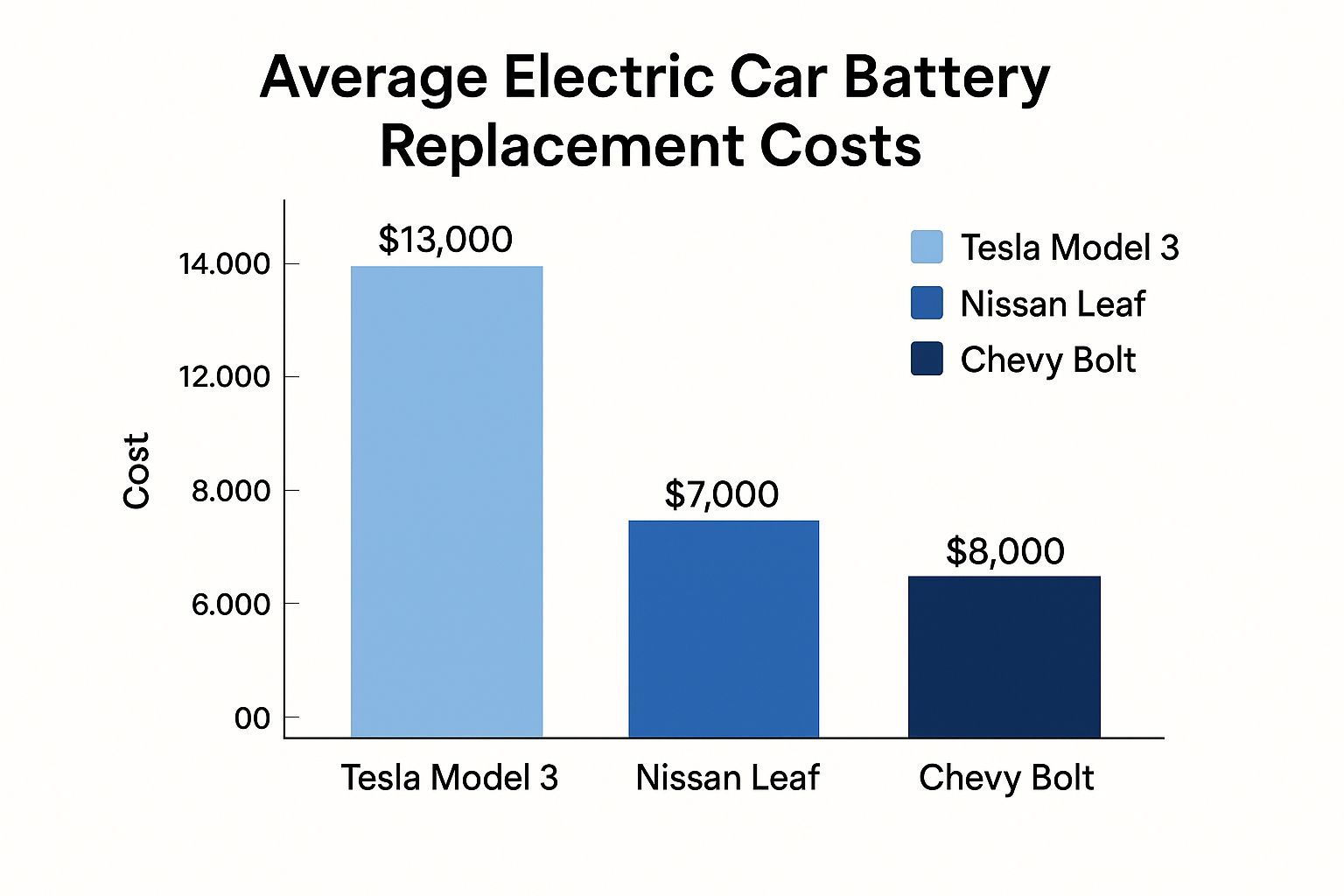
As you can see, the brand and model have a massive impact on the potential bill you might face.
Full Replacement vs Module Repair vs Reconditioned Battery
When your EV battery starts playing up, you've got a few paths you can take. It’s not always a case of forking out for a brand-new one. Here's a practical look at your options, weighing up the cost, warranty, and potential headaches of each.
| Option | Typical Cost | Best For | The Catch |
|---|---|---|---|
| Full Replacement | £5,000 - £20,000+ | A completely dead or severely degraded battery still under the manufacturer's warranty. | Eye-watering expense if you're footing the bill. It's the nuclear option. |
| Module Repair | £1,000 - £3,000 | When a specific fault has been diagnosed in one or two modules of an otherwise healthy battery. | You need an independent specialist with the right skills; not all garages can do this. |
| Reconditioned Battery | £3,000 - £8,000 | A cost-effective solution for out-of-warranty cars where the battery is tired but doesn't need a brand-new one. | The quality and remaining lifespan can vary. Always check the warranty offered. |
Ultimately, repairing a single module or opting for a reconditioned unit can be a brilliant way to get your car back on the road without bankrupting yourself. It just pays to find a reputable specialist who knows what they're doing.
A Glimpse into a Cheaper Future

Right, after all that talk of five-figure invoices, here’s the good news. The current eye-watering cost of replacing an electric car battery isn’t set in stone. In fact, prices are already tumbling, and the future looks a lot kinder to our bank balances.
Think back to the first plasma screen TVs. They were absurdly expensive luxuries you’d only see on Cribs. Now? You can pick up a massive, wafer-thin screen at the supermarket for a few hundred quid. Electric car batteries are on that exact same trajectory, propelled forward by relentless tech advances and changing global economics.
The main drivers behind this welcome trend are falling raw material costs and much smarter manufacturing. The world is simply getting better and faster at making batteries, and that efficiency inevitably trickles down to lower prices for us, the drivers.
The Tech Making Batteries Cheaper
It’s not just about getting more efficient at digging minerals out of the ground. The very chemistry inside the batteries is changing for the better, and this constant push for improvement is the key reason future replacement costs will be far more palatable.
Two major factors are at play here:
- Smarter Chemistry: Scientists are constantly cooking up new battery recipes that rely on cheaper, more abundant materials. Sodium-ion batteries, for instance, are emerging as a serious alternative to lithium-ion, promising similar performance without needing expensive or ethically tricky cobalt.
- Manufacturing Muscle: As more ‘gigafactories’ pop up around the globe, the sheer scale of production creates massive economies of scale. It’s like anything else – the more you make, the cheaper each individual unit becomes.
The price of batteries is plummeting faster than anyone predicted. Goldman Sachs Research projects costs to fall by almost 50% between 2023 and 2026, dropping from around £118 per kWh to just £63 per kWh.
This isn't some far-off fantasy; it's happening right now. The technology is evolving at a breakneck pace, and you can get a deeper understanding by exploring the latest innovations in electric vehicle battery technology in our detailed article.
All this progress means that by the time your current EV might actually need a new battery, the cost will likely be a fraction of what it is today.
Is the Replacement Cost a Deal Breaker?
After all the talk of eye-watering figures and technical details, let's get down to brass tacks. Is the potential cost of replacing an electric car battery the huge financial nightmare it’s often painted as? Is it the one thing that should stop you from buying an EV?
Honestly, for the vast majority of people, the answer is a resounding no.
While the bill for a full battery replacement is undeniably large, it's vital to see it for what it is: a very rare event. Fixating on this one cost is a bit like refusing to fly because of the minuscule possibility of a plane crash. It’s a worst-case scenario, but one that’s incredibly unlikely thanks to durable battery technology and the long warranties that back it up.
The simple truth is that for most drivers, the battery will easily outlast the car it’s in. Worrying about a replacement you probably won’t need for 10-15 years , if ever, means you’re missing out on all the immediate benefits of EV ownership.
Putting the Cost into Context
To get a real sense of the situation, you need to balance this one potential, far-off expense against the definite, day-one savings you'll make. When you start adding up everything you'll save on fuel, road tax, and regular maintenance over the car's lifetime, the financial picture looks very different.
The total cost of owning an EV is almost always lower than for a comparable petrol or diesel car. The huge savings you make on running costs create a financial buffer that more than covers the remote risk of a future battery replacement.
Think of it this way: the thousands of pounds you're not spending at the petrol station each year is real money going back into your pocket. This ongoing financial advantage is one of the main reasons people switch to electric.
As we explore in our guide to the future of EV warranties , manufacturers are constantly improving these protections, giving buyers even greater peace of mind.
Ultimately, our message is one of informed optimism. It’s wise to understand the potential costs, but don't let a distant 'what if' stop you from enjoying the very real and immediate benefits of going electric.
Frequently Asked Questions
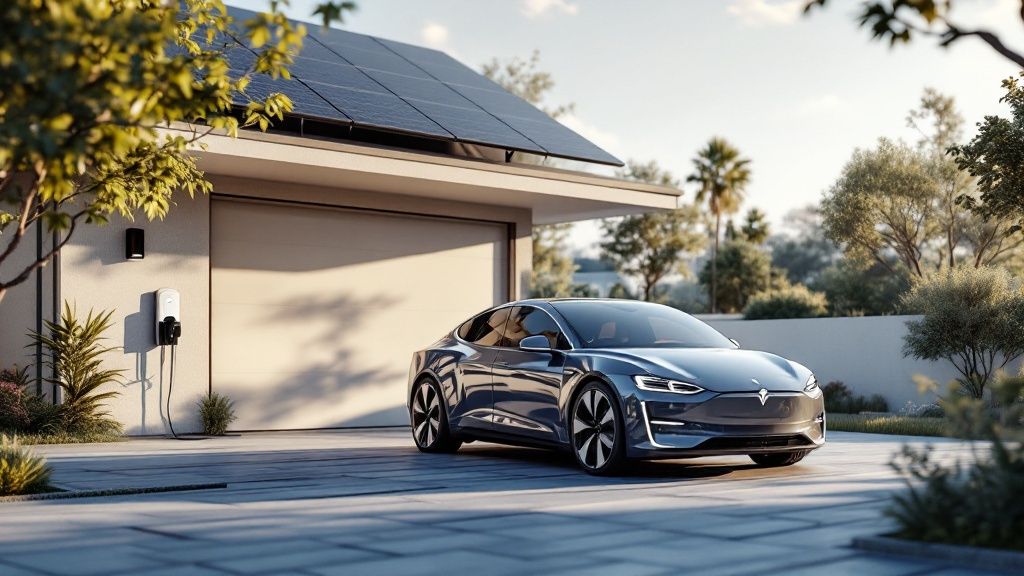
Alright, we’ve covered a lot of ground, but you probably still have a few questions rolling around in your head. Let's tackle some of the most common ones to clear up any lingering doubts about EV battery replacements.
No jargon, just straight-up answers.
Does My Car Insurance Cover Battery Replacement?
In most cases, no. Your standard car insurance policy isn't going to cover a battery replacement that’s needed due to simple old age and degradation. Insurers see this as predictable wear and tear, just like replacing worn-out tyres or brake pads. It's considered a normal part of running the car.
However, there's a big exception to this rule. If your battery gets damaged in a collision or another sudden incident, like introducing it to a massive pothole, your comprehensive policy should cover the cost . As ever, the best advice is to check the specific wording in your policy documents.
Can I Replace Just a Single Faulty Cell?
Yes, absolutely. And frankly, this is often the smartest and most affordable way to handle a problem. An electric car battery isn't one monolithic block; it's made up of several smaller modules, which in turn are filled with individual cells. A good EV technician can pinpoint a single faulty module and replace just that part, saving you a huge amount compared to swapping out the entire battery pack.
Think of it like this: you wouldn't replace an entire engine just because a single spark plug failed. Fixing a battery at the module level is the same principle—a precise, targeted repair that gets you back on the road without breaking the bank.
How Does a Replacement Battery Affect My Resale Value?
Putting a new or nearly new battery in your car can actually give its resale value a healthy boost. For a potential buyer, knowing that the car’s most expensive component has been reset to factory-fresh condition is a massive plus. It takes away the biggest worry associated with buying a used EV.
Just make sure you hang on to every bit of paperwork from the replacement. Having a documented, professional job proves the battery's health and can make your car far more appealing, potentially adding hundreds or even thousands of pounds to its value when you decide to sell.
At VoltsMonster , we cut through the jargon to give you the real story on EV ownership. For more honest reviews and straight-talking guides, check out our latest articles at https://www.voltsmonster.com.

